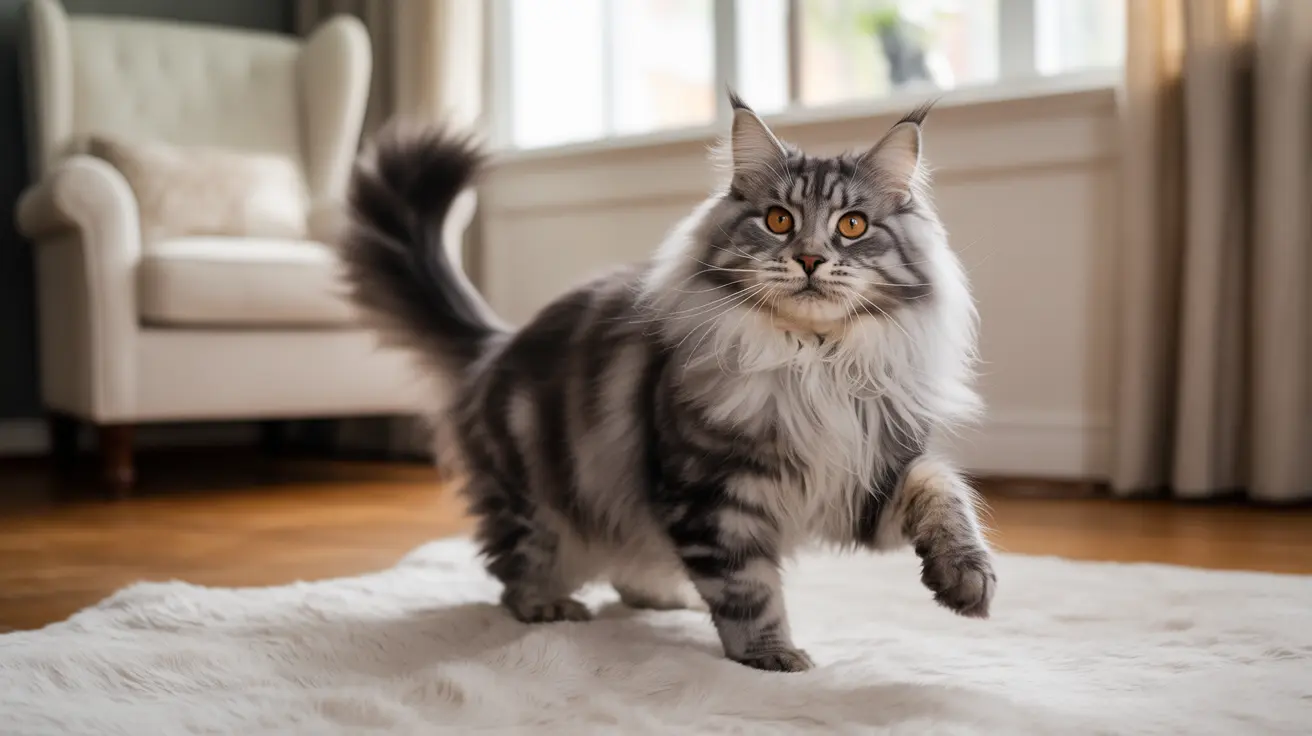Medical Causes Behind Inappropriate Urination
Before assuming your cat is acting out behaviorally, it's crucial to rule out medical issues. Several health conditions can lead to inappropriate urination:
Urinary Tract Problems
Urinary tract infections (UTIs), bladder stones, and Feline Lower Urinary Tract Disease (FLUTD) can cause painful urination, leading cats to associate their litter box with discomfort. They may seek out soft, comfortable surfaces like dog beds instead.
Other Health Issues
Conditions such as diabetes, kidney disease, or arthritis can affect your cat's ability to use the litter box properly. Senior cats may develop cognitive dysfunction, which can also lead to inappropriate elimination.
Behavioral and Environmental Triggers
Stress and Anxiety
Cats are sensitive to changes in their environment. Common stressors that might lead to inappropriate urination include:
- New pets or family members
- Moving to a new home
- Changes in routine
- Loud noises or construction
- Conflict with other pets
Territory Marking
Cats may urinate on dog beds as a way to mark territory or assert dominance. This is especially common in multi-pet households or when new animals are introduced to the home.
Litter Box Issues
Sometimes, the problem lies with the litter box setup itself:
- Insufficient number of boxes (experts recommend one per cat plus one extra)
- Poor location (too public or too difficult to access)
- Dirty conditions
- Wrong type of litter
- Box size or style issues
Solutions and Prevention Strategies
Immediate Actions
Take these steps right away to address the situation:
- Schedule a veterinary check-up to rule out medical issues
- Clean soiled areas thoroughly with enzymatic cleaners
- Temporarily restrict access to the dog bed
- Consider using deterrent sprays in problem areas
Long-term Solutions
Implement these changes for lasting results:
- Optimize litter box placement and maintenance
- Reduce household stress with consistent routines
- Provide environmental enrichment
- Use pheromone diffusers to create a calming environment
- Consider professional behavioral consultation if needed
Frequently Asked Questions
Why is my cat peeing on my dog's bed instead of using the litter box?
Your cat may be experiencing medical issues, stress, or litter box problems. The soft surface of the dog bed might be more appealing, especially if there are underlying health concerns or if the litter box setup isn't ideal.
Could my cat's urination on the dog bed be a sign of a medical problem like a UTI?
Yes, inappropriate urination can be a sign of various medical conditions, including UTIs, bladder stones, or other health issues. It's essential to have your cat examined by a veterinarian to rule out medical causes.
How can stress or anxiety cause my cat to pee on the dog bed, and what can I do?
Stress can trigger inappropriate urination as a coping mechanism. Reduce stress by maintaining consistent routines, providing hiding spots, using pheromone products, and ensuring your cat has adequate resources and personal space.
What changes to the litter box setup can help stop my cat from peeing on the dog's bed?
Ensure you have enough litter boxes (one per cat plus one extra), keep them clean, use unscented litter, and place them in quiet, accessible locations. Consider trying different litter types or box styles to find what your cat prefers.
How do I clean and prevent my cat from repeatedly urinating on the dog's bed?
Use enzymatic cleaners specifically designed for pet urine to thoroughly clean the bed. Consider temporarily restricting access to the dog bed while addressing underlying causes. Maintain a clean litter box and provide positive reinforcement for proper litter box use.
Conclusion
While finding your cat peeing on the dog bed can be frustrating, remember that this behavior typically has an underlying cause that can be addressed. By taking a systematic approach to identify and resolve the root issue - whether medical, environmental, or behavioral - you can help your cat return to proper litter box habits and restore peace in your multi-pet household.






